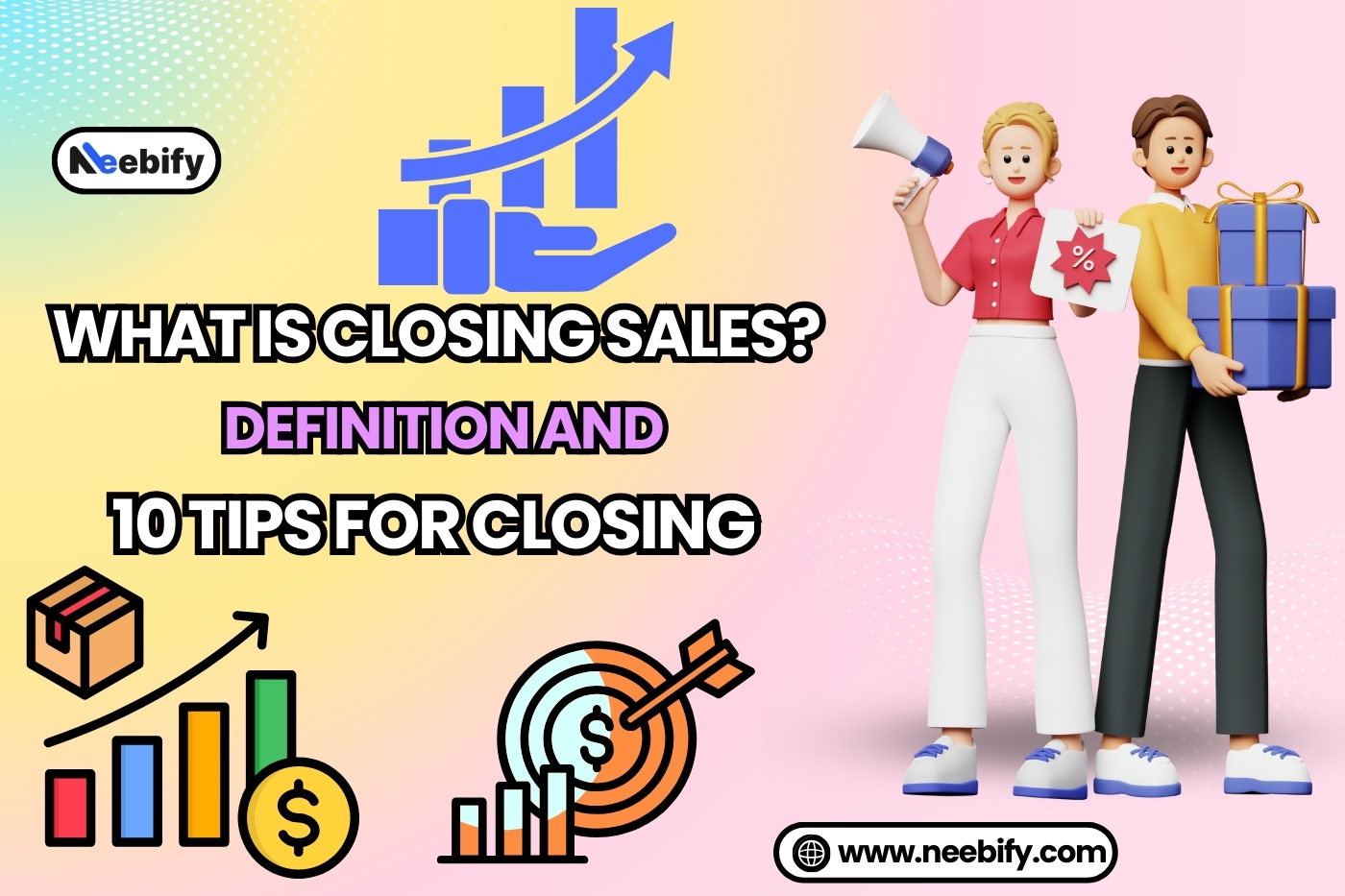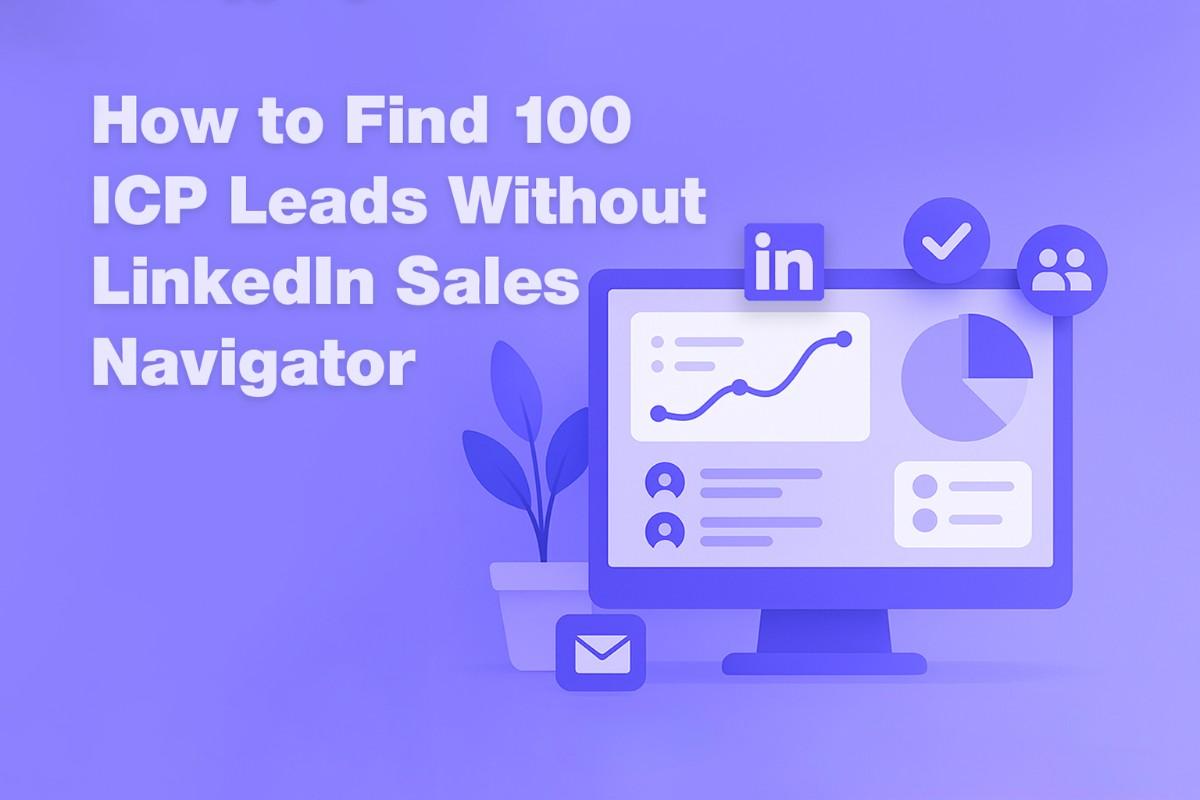Table of content
What is Closing Sales? Definition And 10 Tips For Closing
In the sales world, the term closing refers to the final stage of a sales process where the seller obtains a commitment from the buyer to buy. It is that final moment when all the effort paid in rapport building, lead nurturing, and objection handling results in a successful close. Whether you are dealing with B2B lead generation strategies or managing B2C sales, the art of closing is the key to generating revenue and expansion in your business.
In this article, we discuss what closing is, and look at 10 ways you can close a sale with success; also which are the top 3 tools necessary to be successful in commercial closing sales.
What is Closing?
Closing is the point where the salesperson concludes the transaction, converting a prospect into a paying customer. Essentially, it is the act of extracting commitment from the prospect to buy a product or service being pitched. Although closing involves bargaining on terms and conditions, in many cases, it calls for identifying the right moment at which a request for sale should be made.
There are quite a few ways of closing sales, and those might vary in B2B and B2C. Again, at the core, regardless of whether you're selling to a business or to an individual, it's all about how you manage to convert that lead into a customer.
What Is Closing Sales in B2B and B2C?
B2B Sales Closing:
The sales process in B2B lead generation is often more complex in the process. It involves multiple stakeholders, often longer sales cycles, and requiring more intricate negotiations. On the other hand, lead generation for B2B mainly looks at generating quality leads through techniques like content marketing, email marketing for B2B lead generation, or any other means of B2B outbound lead generation.
There are discussions about needs, product tailoring, and even pricing before it is closed in B2B sales. B2B Closers often face more than one objection, pitch before different decision-makers, and often must show ROI, too.
Closing in B2C Sales:
In B2C sales, closing is generally easier. Because the decision making, as a rule, is faster, and the cycle is shorter, the effective B2B lead generation methods may not be applicable much in B2C because, here, focus is more on direct consumer needs and emotions than on business logic.
In B2C closing, techniques such as urgency, scarcity, and special limited-time offers are the tactics that prompt customers to make a buying decision. However, B2B marketing techniques like segmentation, targeted messaging, and inbound marketing strategies would be applicable in B2C situations if circumstances deem so in the sales process.
What is the Salary of a Closer?
The salary for a closer varies heavily depending on the industry, location, and the size of the company they work for. In general, the annual sales closer's salary would range from $50,000 to over $100,000, however higher amounts are possible when including commissions and bonuses.
In B2B sales, closers are usually paid a higher base salary owing to the sales process complexity. At the same time, their commissions can get pretty significant- and very high in case of closing high-value deals. As for B2C sales, usually, the salary is industry-specific, but it is often motivated by commission and performance-based incentives.
What Training Should I Take for Closing Sales?
Training in sales closing techniques is one of the most important aspects for those looking to enhance their deal closing skills. Here are some of the areas that need concentration:
1. Negotiation Skills: How to negotiate terms and dismiss objections are quite crucial for closing sales, especially B2B deals.
2. Product Knowledge: Having a deep understanding of what you sell impresses your clients with your depth of knowledge, and it gives you the assurance to seal the deal.
3. Emotional Intelligence: The art of understanding what the prospect is feeling and altering the approach can be quite significant in the process of B2B sales funnel optimization.
4. Sales Psychology: Learning the psychology of buying decisions is crucial for understanding when to push for the sale and when to hold back.
5. CRM Training: Familiarity with CRM tools to track prospects and manage sales leads can streamline the closing process.
6. Pitching Techniques: Mastering how to present your offer effectively and clearly is one of the most important skills in sales closing.
Key Resources for Training
Sales techniques courses are available on the web on courses like Coursera or LinkedIn Learning that include negotiation and closing.
Sales seminars and workshops frequently have live practice and role-playing, which will hone your closing techniques.
Mentorship from veterans of closers can even provide very direct, hands-on learning.
10 Tips for Closing Sales
Closing a sale is not quite asking for the deal. It's a strategic process that involves preparation, patience, and a certain level of skill. Here are 10 actionable tips that can help you improve your closing rate:
1. Know what your prospect needs: B2B lead generation or B2C sales, understanding your prospect's pain points and needs is crucial. Offer solutions that cater specifically to those needs.
2. Rapport Building Early: Prospects need to trust and relate to you early in the sales cycle. The rapport built at early stages increases chances of closure.
3. Right Timing: Timing is everything when closing. Understand when the prospect is ready to buy. If you ask too soon, you lose the sale; wait too long, and you lose the opportunity to others.
4. Social Proof: Give case studies or testimonials that demonstrate the success of your product or service. For the topic B2B lead nurturing strategies, give how it helped similar businesses in the same industry.
5. The Right Questions: Ask open-ended questions while discussing the sales with the prospect to uncover their real needs. This helps provide specific solutions and increases the chances of closing.
6. Overcome Objections: Prepare for objections. Addressing concerns regarding the cost, the fit of product or time early can prevent last-minute hesitation during the closing.
7. Use Urgency and Scarcity: Making someone feel there is urgency and scarcity will encourage the prospect to act sooner rather than later. Whether it's offering a time-limited discount or pointing out limited availability, that creates a sense of urgency that could speed up decision-making.
8. Make a Clear Follow-on Step: Always give the prospect a next step. This could be scheduling a follow-up meeting, sending him a proposal, or asking for the sale. It is always essential to have an action plan.
9. Make the Offer Irresistible: Offer something that makes the deal too good to pass up—an extra free product, a discount, or access to resources he can't find anywhere else.
10. Follow Up: Persistence is key in sales. If a prospect hasn’t committed yet, don’t hesitate to follow up with a polite reminder or additional information to reinforce the value of your offer.
Top 3 Tools to Succeed in Your Commercial Closing Sales
To enhance your closing skills and ensure you’re successful in your commercial sales, here are the top 3 tools that can help streamline your efforts:
1. CRM (Customer Relationship Management) Tools: Prospecting CRM represents a vital tool while handling your leads, tracking communication, and conducting follow-ups. There are CRMs like Salesforce, HubSpot, or Zoho CRM which can help sales teams keep tabs on potential buyers, streamline the process of selling, and maintain their contacts.
A CRM is especially useful in the B2B lead generation strategies, wherein several interactions are frequently required before closing. It helps you to stay organized and ensures that you never miss a critical follow-up or action item.
2. B2B Lead Generation Tools: Effective B2B lead generation methods would often require robust tools that help you identify and target the right prospects. LinkedIn Sales Navigator, Leadfeeder, and Hunter.io enable you to search, filter, and connect with leads faster.
These tools help you identify prospects through social media and other online sources, ensuring your lead generation efforts are aligned with top lead generation tactics.
3. Call Recording and Analytics Tools: Recording your phone calls for practice and analysis is one of the best ways to improve your closing skills. Tools like Rev.com and Aircall offer call recording and transcription features, allowing you to analyze your conversations, identify areas of improvement, and refine your closing techniques over time.
For B2B lead nurturing strategies, call recordings can give you a better view of how you engage prospects and help you know what works best when it comes to closing.
Conclusion
In short, closing is the deal-making or completion part of the sales process, whether B2B lead generation or B2C sales. Being aware of the tips on B2B lead generation, the application of effective B2B marketing techniques, and getting the right tools do indeed put you in a better position to close deals. Whether prospecting in B2B or B2C, closing is the magic word that shall empower you to have consistent sales success.
Get your next meeting in a
matter of minutes.
Free Trial
Latest
The Ultimate LinkedIn Outreach Playbook 2025
A practical, modern guide to mastering LinkedIn outreach in 2025 — learn how to boost reply rates, p
12/1/2025How to Find 100 ICP Leads Without LinkedIn Sales Navigator
Generating 100 targeted ICP leads doesn’t require LinkedIn Sales Navigator. Learn how to leverage fr
11/28/2025


